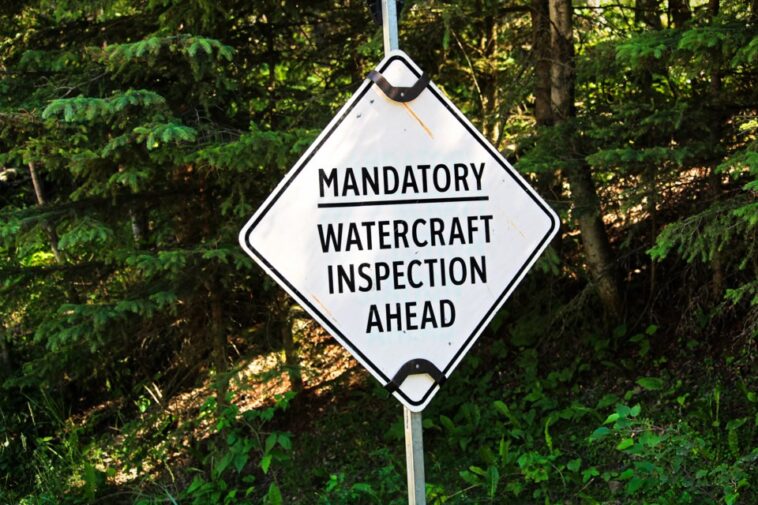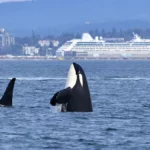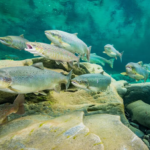The province announced $150,000 in funding for its Invasive Mussel Defence Program after quagga mussels — an invasive species that has decimated eastern waterways in recent years — were found in the Snake River, a large tributary to the Columbia River, last fall. Money for the program is being contributed by the Columbia Basin Trust, BC Wildlife Federation, and the Pacific Salmon Foundation. BC Hydro has also committed $900,000 a year for the next five years.
Because the effects of mussel infestations are broad, long-lasting, and expensive to mitigate, prevention is crucial, sources told The Goat.
“At a local level, it can be quite devastating from both an environmental and economic perspective,” said Johnny Strilaeff, president and CEO of the Columbia Basin Trust. “[Quagga mussels] like to attach themselves to physical structures, so you can imagine a community’s water system becoming fouled with these tiny little mussels […] and all the effort and cost that would be required to remove them so the water system can continue to operate.”
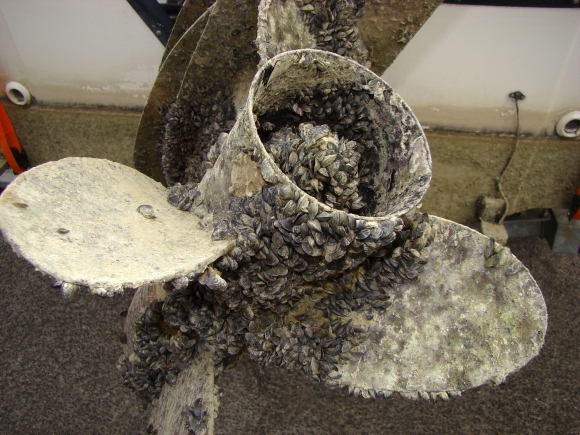
Jesse Zeman, executive director of the B.C. Wildlife Federation, shares Strilaeff’s concerns about a lack of preventative measures.
“We saw the Government of Canada withdraw their funding (for invasive mussel prevention), which is, quite frankly, unbelievable,” Zeman said. “So we really stepped up in supporting this because there are no take-backs with this issue. We think it’s dire, and we’re really concerned that funding for this issue is giving nothing to prevention.”
According to Zeman, mussel infestations pose deadly threats to an ecosystem — and make for unpleasant experiences for humans, too.
“And when they die, jurisdictions have ended up with botulism outbreaks where animals that scavenge dead mussels also died.”
Jesse Zeman, executive director of the BC Wildlife Federation
“We can expect beaches to be covered in mussels, so the idea of walking down a beach in bare feet is now gone,” Zeman said. “And when they die, jurisdictions have ended up with botulism outbreaks where animals that scavenge dead mussels also died.”
Jason Hwang, chief program officer and vice president at the Pacific Salmon Foundation, also spoke about how invasive mussels harm animals in an ecosystem.
“These species come in right near the bottom of the food web and filter out microorganisms, and everything above them in the food web is impacted,” said Hwang. “You’ll have fewer fish — you don’t have fish for your local people to catch, you’ll have fewer fish for tourists to catch, and you’ll have a cascade of other effects in the ecosystem.”
While their populations grow quickly, mussels have difficulty moving upstream, according to Hwang — they’re most likely to spread into BC by attaching to watercraft.

“We have the opportunity to prevent [mussels] from getting here,” Hwang said. “They’re unlikely to get here without humans bringing them, so let’s make sure humans don’t bring them here.”
Zeman and Strilaeff agreed on the importance of prevention, too.
“Once you have them in a large water body, you’ll never get rid of them,” Zeman said. “Your best investment is in ensuring you don’t get them in your water.”
Currently, BC has six mandatory watercraft inspection stations stationed along its borders with the U.S. and Alberta, and two roving inspection crews, the Ministry of Water, Land and Resource Stewardship told The Goat in an email. All six watercraft inspection stations are expected to be operational by late May, according to the ministry’s statement.
However, advocates say the government could be doing more than funnelling money to inspection stations.
“Watercraft inspection stations are not year-round — they’re seasonal, and they’re also not 24/7. And we’ve found in some communities, Valemount being a recent example, it’s been incredibly difficult to recruit new individuals into those jobs,” Strilaeff said. “It’s not just having the funding, it’s also translating that funding into training, recruitment, and actual ongoing employment.”
The Columbia Basin Trust is advocating for more comprehensive mussel prevention from the province, and more funding from the federal government, according to Strilaeff, but he worries authorities will not be receptive.
“I wish I could say I am optimistic,” he said. “I am pleased there is conversation happening — that should be seen as a positive. I really need to see that conversation turn into tangible, collaborative action.”
Not strict enough
Zeman said current watercraft regulations are not strict enough to protect BC waterways from mussels.
“We need legislation that ensures that no one brings mussels into BC and that every single boat, watercraft, stand-up paddle board, everything gets decontaminated and is not put into our water without a waiting period.”
Jesse Zeman, executive director of the BC Wildlife Federation
“From our perspective, we have two choices: one is to not allow boats to enter the province, period. The other is to ensure that every single boat that comes in is inspected and quarantined for a period of time,” Zeman said. “We need legislation that ensures that no one brings mussels into BC and that every single boat, watercraft, stand-up paddle board, everything gets decontaminated and is not put into our water without a waiting period.”
Like Strilaeff, Zeman is worried that provincial and federal government responses will not be adequate.
“Given the gravity of the situation, we’re not optimistic,” he said “We’ve been disappointed.”
In an email statement to The Goat, Fisheries and Oceans Canada (DFO) said federal funding to respond to aquatic invasive species has increased. In 2018, the department committed to allocate $500,000 in funding over the course of four years to research and prevent the spread of invasive mussels.
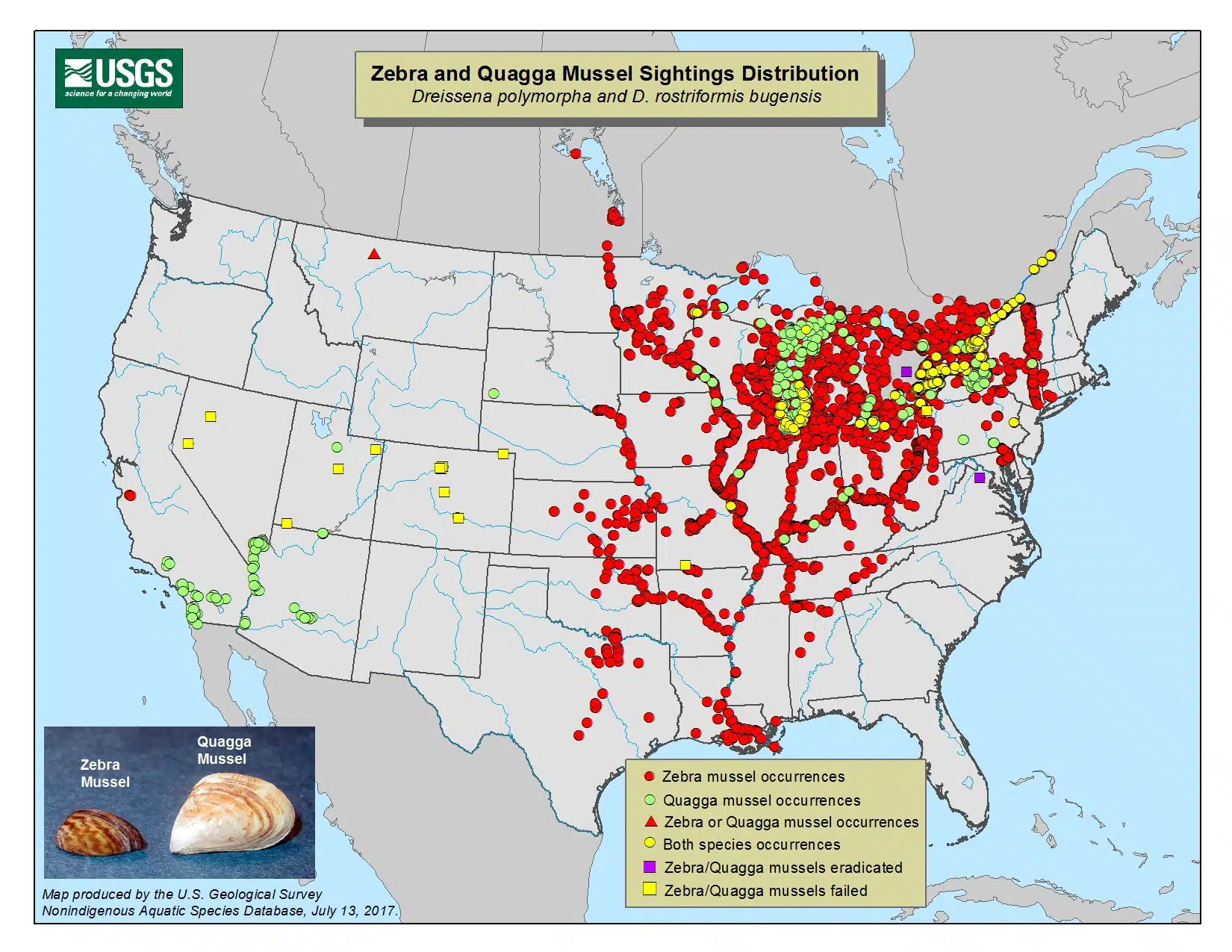
In 2022, DFO committed to contributing $3.6 million over five years to its Pacific region to hire and train fishery officers to enforce invasive species regulations. This February, DFO partnered with the Habitat Conservation Trust Foundation to distribute up to $540,000 to support the work of BC’s invasive mussels defence program (IMDP). How these funds are used will be up to the province of BC, DFO said.
The responsibility of mussel prevention is shared by the province and the federal government, the Ministry of Water, Land and Resource Stewardship told The Goat.
“The province continues to raise this issue with the DFO to resume federal support for this vital program.”
The Ministry of Water, Land and Resource Stewardship
“In 2022, BC was successful in securing a one-year financial contribution from the Department of Fisheries and Oceans Canada to support the IMDP, but the department has not renewed funding for subsequent years,” said the ministry’s statement. “The province continues to raise this issue with the DFO to resume federal support for this vital program.”
Additionally, the ministry confirmed that “pull-the-plug” and “drain and dry” legislation — which would make boats less hospitable to mussels by requiring owners to unplug and dry them prior to moving them on BC roads — is under consideration as the Wildlife Act is currently under review.
In any case, advocates agree that mussel prevention will take work across multiple levels of government.
“It can be easy to get into a finger-pointing situation,” Hwang said. “What we should be doing is recognizing that multiple entities have a role here, and we should be asking them to come together and collectively take responsibility to prevent this problem from happening.”
Story by Abigail Popple, Local Journalism Initiative Reporter / The Rocky Mountain Goat


